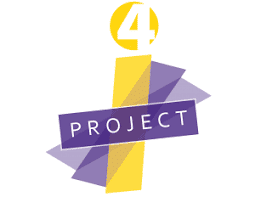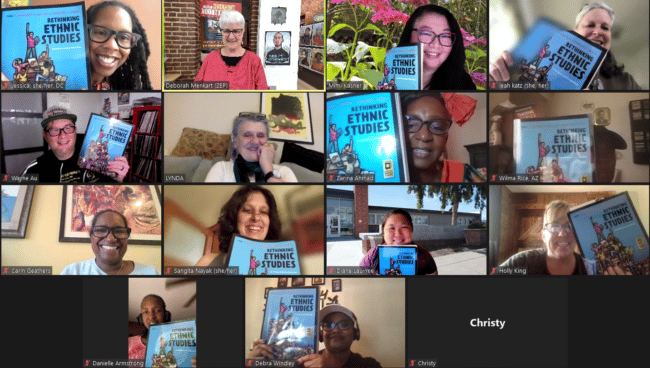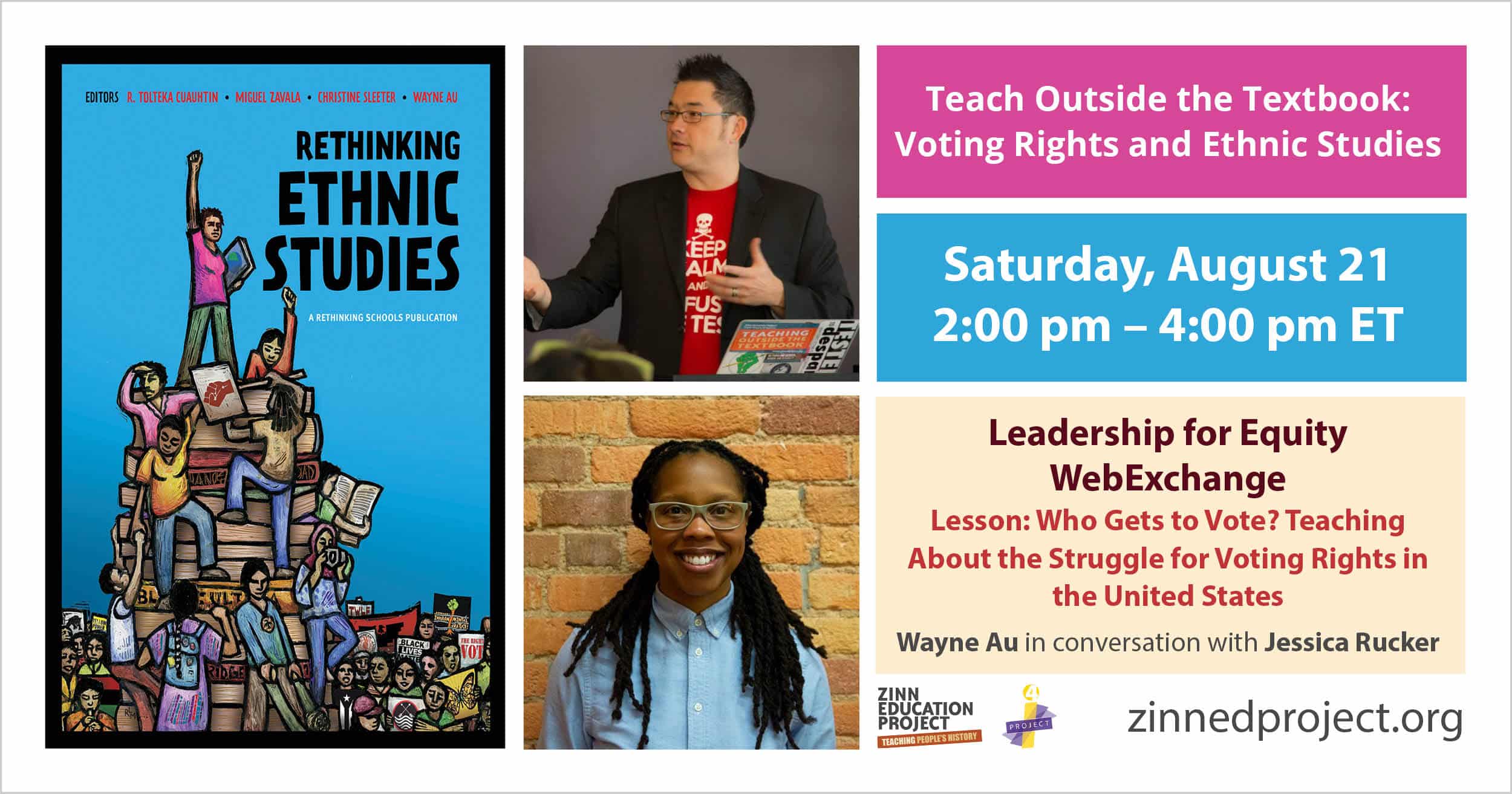“Teach Outside the Textbook: Voting Rights and Ethnic Studies” was an invitational workshop for participants in Project I4 micro-credential cohorts with lessons and resources to teach outside the textbook about voting rights and ethnic studies.
 The session began with participants engaging in “Who Gets to Vote? Teaching About the Struggle for Voting Rights in the United States” led by lesson author and Zinn Education Project staff member Ursula Wolfe-Rocca. This lesson for grades 7+ introduces students to the history of the fight for voting rights through stories of people who were denied the right to vote due to race, gender, national origin, and/or ethnicity. It includes stories of voter suppression of — and resistance by — African Americans, Native Americans, Latinx, and Asian Americans.
The session began with participants engaging in “Who Gets to Vote? Teaching About the Struggle for Voting Rights in the United States” led by lesson author and Zinn Education Project staff member Ursula Wolfe-Rocca. This lesson for grades 7+ introduces students to the history of the fight for voting rights through stories of people who were denied the right to vote due to race, gender, national origin, and/or ethnicity. It includes stories of voter suppression of — and resistance by — African Americans, Native Americans, Latinx, and Asian Americans.
In their reflections about the lesson, participants commented:
The voting rights role play mixer was an excellent way to engage participants as you gave us a demo lesson. I will use that lesson with my staff which will provide a model for them to then use with their students.
ALL of the stories I heard in the voting rights lesson were meaningful because it was eye-opening that we didn’t ever hear about many of those names and VOICES that have been silenced.
The lesson was wonderful and continues to remind me how important it is to listen to individual stories to access history.
Voting issues from the past are still issues today.
Participants then heard from Wayne Au, an educator, activist, and scholar who focuses on issues of race, class, and power in schooling. He is a professor in the School of Educational Studies at the University of Washington-Bothell, where he currently serves as dean of diversity and equity, and an editor of the magazine Rethinking Schools. He is co-editor (with R. Tolteka Cuauhtin, Miguel Zavala, and Christine Sleeter) of Rethinking Ethnic Studies and co-editor (with Dyan Watson and Jesse Hagopian) of Teaching for Black Lives.
Au was interviewed by Jessica A. Rucker, an electives teacher and department chair at Euphemia Lofton Haynes Public Charter High School in Washington, D.C. Rucker is a member of the D.C. Area Educators for Social Justice and a community accountable scholar with more than a decade and a half of youth development and community education expertise.
In her reflection on the interview, one participant noted: “Teaching ethnic studies is not a curriculum you can purchase and just have teachers turn the page. Teachers must relearn how they were taught to teach, relearn self identity and relearn history to get at the daily truth that we share in our lessons to make learning relevant and authentic.”
At the end of the session, some attendees took a group photo with their copy of Rethinking Ethnic Studies. (All registrants for the session received a complimentary copy of the book.)

Here is a description of the book:
Rethinking Ethnic Studies brings together many of the leading teachers, activists, and scholars in this movement to offer examples of Ethnic Studies frameworks, classroom practices, and organizing at the school, district, and statewide levels. Built around core themes of indigeneity, colonization, anti-racism, and activism, Rethinking Ethnic Studies offers vital resources for educators committed to the ongoing struggle for racial justice in our schools.
In this moment of rising visibility and normalization of systemic, intersectional, and organized racism, we must more deeply understand the legacies of white supremacy, colonization, and imperialism that have long shaped U.S. schools and society, and the equally long legacies of anti-oppressive struggle. With brilliant insight, stirring passion, and evidence for hope, Cuauhtin, Zavala, Sleeter, Au, and dozens of colleagues share here a compelling framework, analyses, and examples of precisely that. Rethinking Ethnic Studies does nothing less than build our collective capacity for rethinking education more broadly. — Kevin Kumashiro, author of Bad Teacher!: How Blaming Teachers Distorts the Bigger Picture
This session is part of a series based on the publications listed below. Each session is on a Saturday from 2pm – 4pm ET via Zoom:

June 26, 2021: Wake: The Hidden History of Women-Led Slave Revolts by Rebecca Hall
August 21, 2021: Rethinking Ethnic Studies edited by R. Tolteka Cuauhtin, Miguel Zavala, Christine Sleeter, Wayne Au
February 5, 2022: The Rebellious Life of Mrs. Rosa Parks – Young Adult Edition by Jeanne Theoharis and Brandy Colbert







Twitter
Google plus
LinkedIn